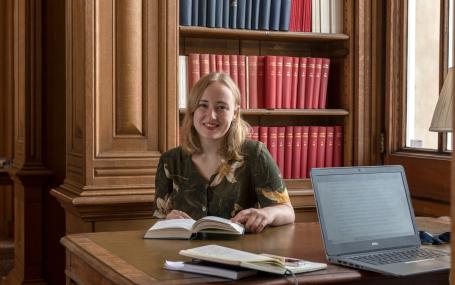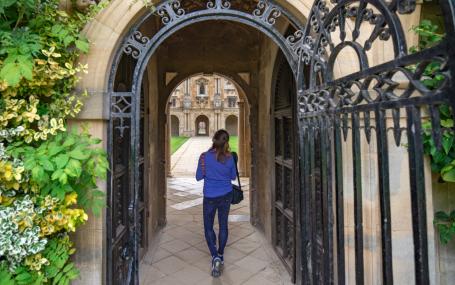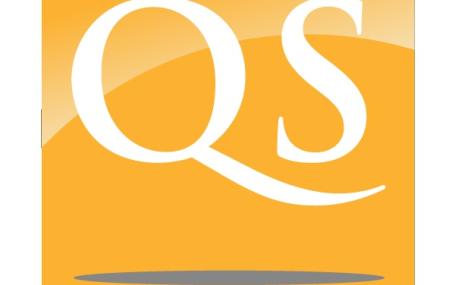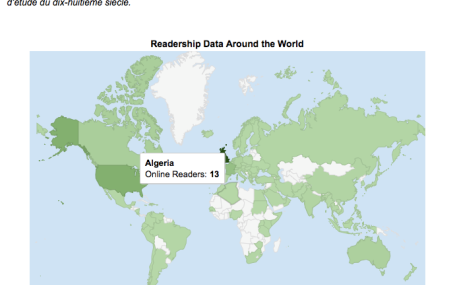
Applicants for the Faculty's graduate courses have access to a wide range of funding opportunities within the Faculty and wider University.
Read all the latest news and upcoming events from the faculty on the main News page.

Applicants for the Faculty's graduate courses have access to a wide range of funding opportunities within the Faculty and wider University.

Research within the University has found that reading complex and engaging texts is key to inspiring young learners’ interest in Modern Foreign Languages (MFL) and potentially improving how the subject is taught in UK secondary schools, according to new Oxford University research.

The Faculty are delighted to announce the launch of a new configuration of our MSt course through a partnership with the Saïd Business School. The new 1+1 MBA course with Modern Languages will be available for first intake from October 2019, and is a unique, two-year graduate experience that combines the depth of a specialised, master’s degree with the breadth of a top-ranking, one-year MBA.
The Faculty is holding an information session for MSt and MPhil programmes on Monday 26 November.

Oxford Open Doors is the annual weekend when when we celebrate the city: its places, spaces and, most of all, its people. The Taylor Institution Library is taking part in the Oxford Open Doors event this Saturday, September 8th, 2018.
Library staff will be giving guided tours to small groups throughout the day, and visitors will be taken to the Voltaire Room to view an exhibition. We hope that this will not cause any disruption, as visitors will be advise that the library rooms are for quiet study. If you have any queries, do not hesitate to contact Joanne Ferrari (joanne.ferrari@bodleian.ox.ac.uk).

Open Days provide an excellent opportunity to visit the Faculty and meet our tutors and students. We welcome prospective applicants to have a look at libraries and classrooms, and to learn more about the admissions process and studying at Oxford.
The next University of Oxford Open Day will take place on Friday, September 14th, 2018. The Faculty of Medieval and Modern Languages will be holding information sessions on all three dates; booking is required. To reserve your place at the Open Day, please, follow this link.

Open Days provide an excellent opportunity to visit the Faculty and meet our tutors and students. We welcome prospective applicants to have a look at libraries and classrooms, and to learn more about the admissions process and studying at Oxford.
The University of Oxford Open Days 2018 will take place on Wednesday, June 27th, Thursday, June 28th, and Friday, September 14th. The Faculty of Medieval and Modern Languages will be holding information sessions pm on all three dates; booking is required. To reserve your place at an Open Day, please, follow this link.

We are pleased to announce that more spaces have been opened on our Modern Languages Open Day, taking place on Saturday, April 28th at the Examination Schools. The event will run from 10.50 am to 4 pm and will offer an overview of Modern Languages at Oxford, as well as a chance for prospective students to ask our tutors any questions they might have about the degree.
Please, note that booking is required.
The Open Days for spring 2018 have now been announced! We welcome prospective applicants to meet our tutors and students, to have a look at libraries and classrooms, and to learn more about the admissions process and studying at Oxford.
The main Open Day at the Faculty of Medieval and Modern Languages is taking place on Saturday, April 28th, with additional language-specific days from February to March.

The Russian sub-faculty is pleased to announce the showings of literary adaptations of masterpieces of Russian classical literature, preceded by short introductions by Modern Languages faculty members, as part of the EHRC Visibility Project. The project aims to introduce the variety of literary adaptations to students reading Russian and everyone interested in Russian literature and language. Short introductions will help unravel these films’ cultural and historical significance.
If you, or any of your students, are interested in applying for 2018 entry, the Faculty is holding an information session on Modern Languages Masters courses.

The University of Oxford has been ranked second in the Complete University Guide for 2018 entry, and very highly across the board for language subjects.

The theme of foolishness has long occupied an unusually prominent place in Russian culture, touching on key questions of national, spiritual, and intellectual identity. In literature, the figure of the fool – and the voice of the fool – has carried additional appeal as an enduring source of comic and stylistic innovation. Never has this appeal been stronger than in the past half-century, whether as a reaction to the «scientific atheism» and official culture of the late-socialist era, or as a response to the intellectual and moral disorientation that accompanied the collapse of the Soviet Union.

The University of Oxford has been ranked 3rd in the prestigious QS World University Rankings for Modern Languages, just behind Harvard University and the University of Cambridge, with the coveted top five-star rating for research, innovation, and teaching.

Julie Curtis, Professor of Russian Literature, and Philip Bullock, Professor of Russian Literature and Music, recently helped Garsington Opera stage a new, original production of Tchaikovsky’s best-loved opera.

Oxford University has come top in the 2016 QS World University Rankings for Modern Languages. The annual QS World University Rankings is a comprehensive guide to the world’s top universities in a range of popular subject areas.

Researchers from six universities with joint expertise in over 40 languages will collaborate with 16 external partners to investigate the connection between languages and creativity in an ambitious research programme funded by the AHRC. The £4 million Oxford-led programme on Creative Multilingualism forms part of the Open World Research Initiative (OWRI), together with programmes led by Cambridge, King’s College London and Manchester. Over four years, they will seek to place languages at the heart of academic and public life.

The EHRC committee is pleased to announce the first recipients of the new Visibility Award Scheme for staff and students in Modern Languages. Number 3 up is the project to complement a successful subtitling project with new material.

The EHRC committee is pleased to announce the first recipients of the new Visibility Award Scheme for staff and students in Modern Languages. Number 1 up is the project to map the correspondence of Catherine the Great.

Bids are invited for EHRC small grants (£2,500) that enhance the visibility of research in Modern Languages. This challenge stems from the idea that there is much going on in Modern Languages which would profit from showcasing.
The challenge should be to encourage everybody working in Modern Languages (faculty, librarians, students) to:
think about the visibility of their research in ways which profit their ongoing work
share best practice in documenting outreach, using social media
link up within the university as much as with external partners